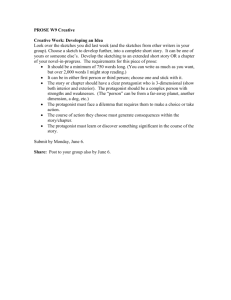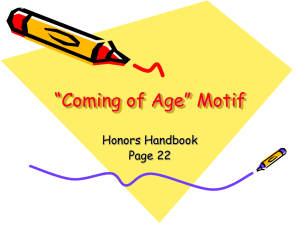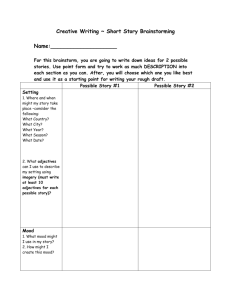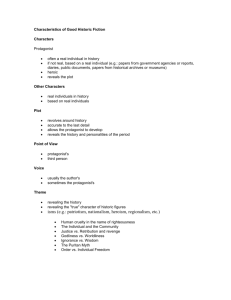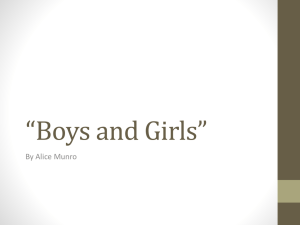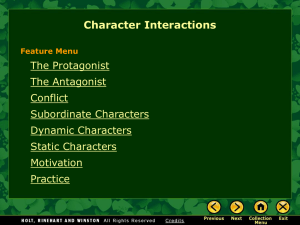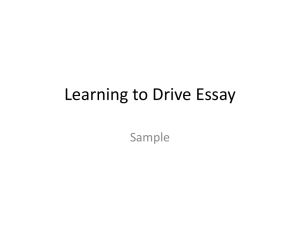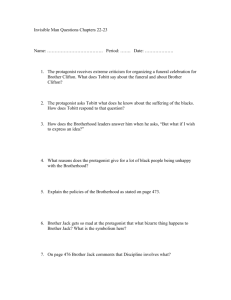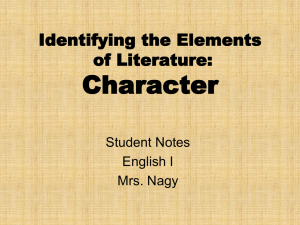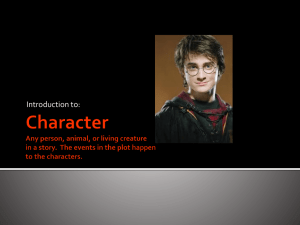English Something Old Something New
advertisement
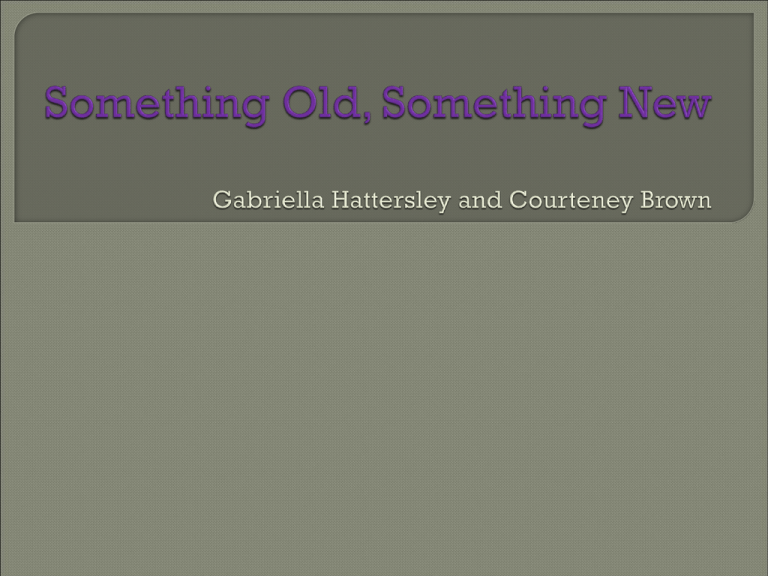
o The Protagonist meets a Muslim girl in Edinburgh and falls in love. o He flies to Khartoum to meet her family before they get married. o In Sudan, they go on outings but are never left alone. o The protagonists’ passport and camera are stolen- he is angry but she is embarrassed at his reaction. o They visit the British Embassy where she is angry at their attitude. o When they return to the house they find that her uncle has died. The traditional three day mourning period means that they are unable to see or talk to each other. The wedding plans are put in jeopardy. o They eventually get married in her brothers’ flat and can be alone at last. o Religion: Both characters are Muslims. The protagonist feels that Islam has answered the big questions in life better than his Catholic upbringing could. It is considered odd for a white man to convert to Islam. o Cultural Differences: The protagonist is eager to embrace his fiancées’ culture but there are some aspects of it he finds disturbing e.g. trying new foods. o o o o Love and Marriage: Two people from very different backgrounds are able to fall in love, overcome obstacles/misunderstandings and get married. Family: The closeness of his fiancées’ family is strange to the protagonist, but the death of her uncle causes him to appreciate it. Society: Sudanese society is normally seen as positive, however there is underlying violence and greed. Scottish society is normally seen as being undermined by drugs. 1. The Protagonist: He has been described as always having been top of his class until university, where he began to drift. Converting to Islam helped him find his purpose in life. He is eager to please his fiancées’ family but is wary of new things. He is very co-dependent (ex-girlfriend). He works as a lab technician and is quite an apparent loner, with his closest considered “friend” being his old Chemistry teacher. 2. The Protagonists’ Fiancée: Went to Scotland to marry her previous fiancé, but got divorced 6 months later due to his apparent infidelity. She is constantly seen through the mans’ eyes as very beautiful and calm. 3. Her Family: They are very close and adhere to tradition, e.g. the mourning period. Therefore it was considered quite strange that she should marry a white man. 4. Her Brother: He is very protective and quite threatening, and always seems keen to take money where he can. The protagonist does not know where he stands with him when they first meet. However the two gain an understanding of each other during the mourning period before the wedding. 5. The Uncle: An amusing Bill Cosby lookalike, he becomes the symbol of the family values when he unexpectedly dies. The story is written in third person but through the eyes of the protagonist. o The title refers to a traditional wedding rhyme. o Quite a few traditional Arabic words and phrases are used when talking about food and religion. o Popular culture references are made throughout the story: The uncle is compared to Bill Cosby, and the family to the Mafia in the Godfather. o Direct speech is used frequently, which tells us a lot about the characters and their attitudes. o The story is mainly a chronological account of a few days in Sudan, but with a short flashback to the when the couple meet and fall in love in Edinburgh. o o Quote: “A girlfriend helped but then she found a job in London and drifted away”. (Line 121-2). “Her calmness made him feel that he needn't be so nervous”. (Line 37-8) Point about the Protagonist: He is a very co-dependent person. o Quote: “…but his teacher wanted the humus salad and he ordered the lentil soup instead because it was familiar.” (Line 85-6) “He was cautious by nature, wanting new things but held back by a vague mistrust”. (Line 86-7) Point about the protagonist: He is wary of new things even though he would like to let himself try them. “Unfair that they should be separated like that” (Line 28) o “I mustn’t kiss you”. “No,” she laughed, “you mustn’t”. (Line 910) o “Her country disturbed him”. (Line 1) o “…misgivings about marrying a foreigner.” (Line 19) o “Insha’ Allah” (Line 68) o It made her look at him properly, as if for the first time.” (Line 169) o
